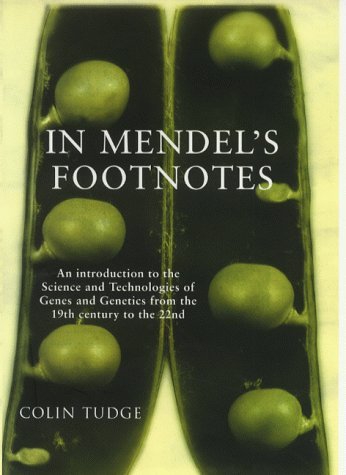Here, for the first time, is a comprehensive and wonderfully readable narrative account of the science of genetics and its applications. The story an its underlying principals are utterly compelling - and beguilingly simple to grasp.
If an obscure MittelEuropean monk named Gregor Mendel hadn't spent the middle part of the last century messing about with peas, the world would be a very different place today. It was Mendel's pea-based experiments in heredity that led directly to the theory of genetics, which provided the missing keystone in Darwin's Theory of Evolution, and which in turn resulted in our genetically obsessed modern world, with its Frankenstein foods, designer offspring, and ever more intense arguments over the pre-determination, or otherwise, of human personality. In a way, without Mendel there would have been no
Natural Born Killers.
This is the fascinating history charted by well-known science writer Colin Tudge (The Variety of Life). From Mendel's Moravian allotment, through Crick and Watson's discovery of DNA, to the horrors of Nazi eugenics, Tudge pursues the sometimes tortured and always controversial life-story of the genetic concept. Unwilling to shirk an argument, Tudge frankly confronts the virtues and vices of sociobiology (the idea that natural selection moulded the human psyche), along with the long-term Darwinian prognosis for homo sapiens as a species (ie are we going to keep "getting better?"). Throughout this lucid and well-written work the monastic spirit of Mendel himself seems to preside: the whole has an air of wry, detached sagacity.--Sean Thomas
